A human rights activist was arrested in Tunisia this week. Over the past few days, the North African country's government has been facing sharp accusations of abuse toward migrants.
Saadia Mosbah, the president of Tunisian anti-racism association Mnemty ("My dream"), was taken into police custody on money laundering allegations Monday night, Tunisian media report.
According to the Tunisian Human Rights League, Mosbah will be "kept in custody for five days pending investigation," AFP reports.
In August 2023, Mosbah was awarded the Global Anti-Racism Champions Award by US Secretary of State Antony Blinken for her anti-racism work.
Her arrest came amid multiple new reports outlining an intensification of measures against Black African migrants in Tunisia.
According to these reports, published by Al Jazeera and local Tunisian media, sub-Saharan African migrants have been rounded up and in some cases expelled from their places of residence and taken to Tunisia's border areas with Algeria and Libya.
A defender of migrants' rights
Mosbah has been an outspoken defender of the rights of sub-Saharan migrants in Tunisia, particularly in the last year.
Near the start of 2023, Tunisian President Kais Saied gave a speech blaming "hordes of illegal migrants", whom he said posed a demographic threat to Tunisia, for the country's political and economic woes.
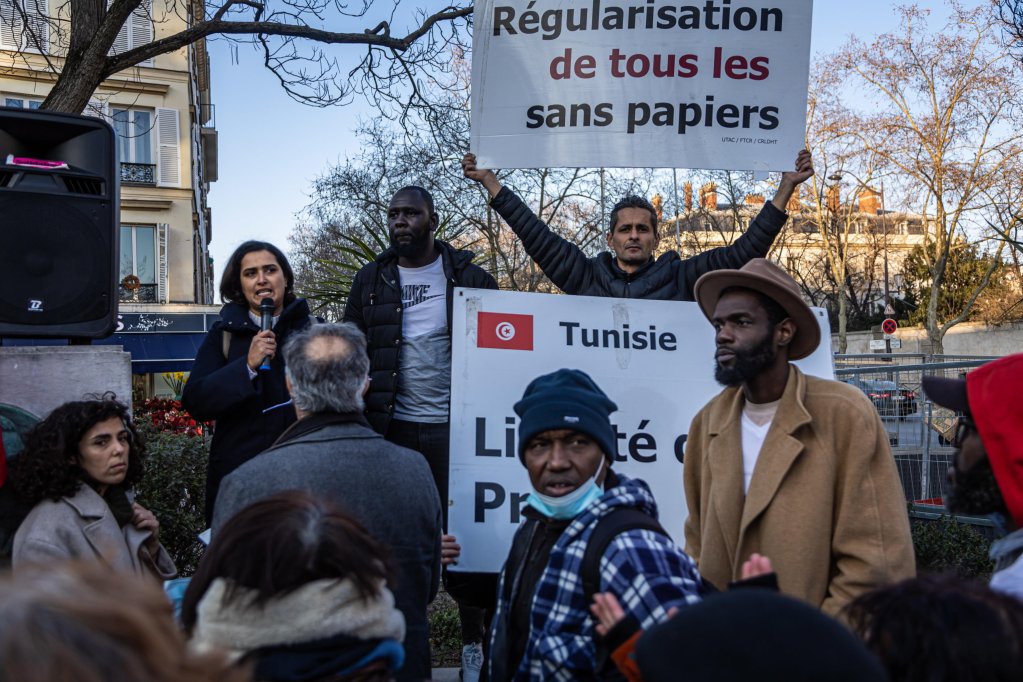
His words set off a spate of violence against migrants in Tunisia from some local residents and authorities alike.
Last year, numerous news agencies and humanitarian organizations denounced a series of reported mass expulsions and round-ups of Black African migrants. They were reportedly bussed to desert areas and abandoned without food, water or shelter.
NGOs singled out in speech by Saied
Mosbah's arrest came just hours after Saied criticized Tunisian humanitarian organizations that defend sub-Saharan migrants at a National Security Council meeting on Monday.
"The associations that cry today and shed tears in the media receive huge amounts of money from abroad," Saied said, according to AFP.
"Most of their leaders are traitors and mercenaries," he continued.
Also read: IOM distributes food to stranded migrants in Sfax, Tunisia
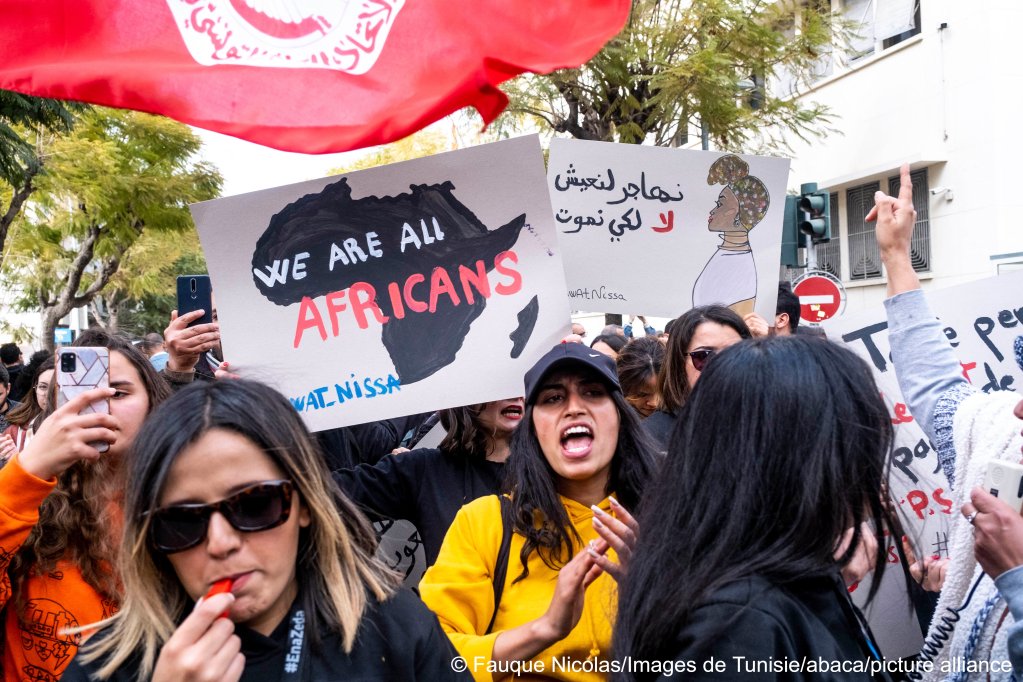
The authorities have reportedly raided several encampments in recent weeks, tearing down tents and expelling migrants.
NGOs accuse National Guard of abuse and neglect of migrants at sea
The Tunisian Forum for Social and Economic Rights FTDES said it could confirm that authorities in Tunis on Friday cleared encampments and expelled hundreds of asylum seekers, migrants and refugees, before bussing them west to near the border with Algeria.
In early April, the organization published a report alleging that according to various witness statements, the Tunisian authorities were often violent towards migrants during interceptions at sea and on land.
Also read: Tunisian coastguard recovers bodies of 13 migrants
In addition to these reports, a collective of Italian activists called Memoria Mediterranea (Mediterranean Memory) published a series of witness statements on May 7 from migrants involved in a shipwreck off the coast of Tunisia on April 5.
The group's work is aimed at helping to identify missing and deceased migrants in the Mediterranean.
Like most stories of abuse at sea, these statements cannot be independently verified. The following is merely a testimony from a migrant who says they experienced the wreck. InfoMigrants reached out to the Tunisian National Guard for response to the testimony, but they did not respond by time of publishing on May 8.
The boat, they say, set off from the coast of El Amra on April 5 with 42 people on board, including 14 women and seven children, mostly from Sierra Leone, Guinea and Gambia.
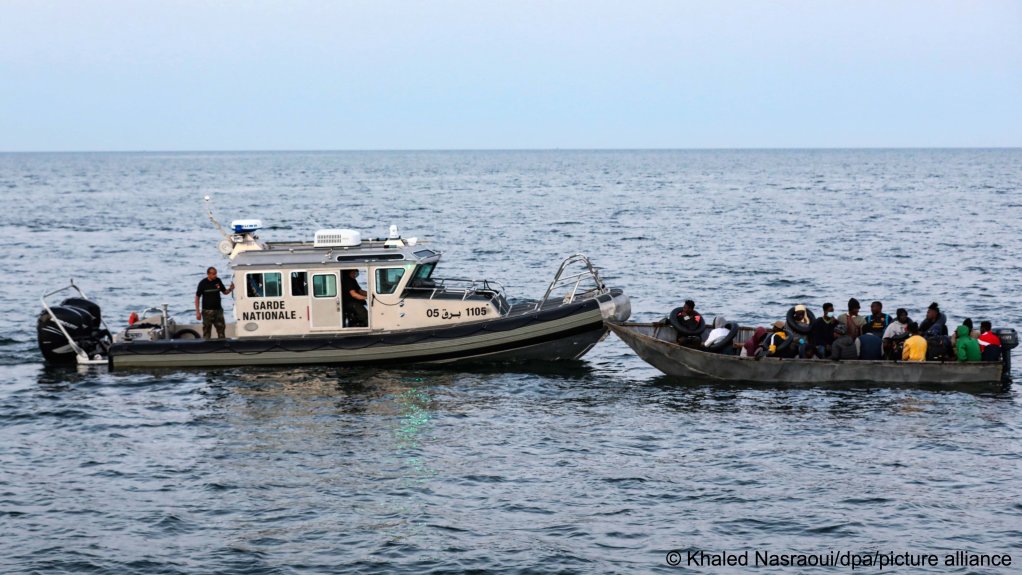
One witness statement
"It was dark and we were about to set off when the Tunisian National Guard (GNT) arrived and started to fire teargas at us," one witness told the collective.
The group managed to set off but were quickly approached once again by a black GNT dinghy that tried to create waves to prohibit the migrant boat from moving forward, the witness claimed.
"All the women started to scream and to beg the GNT officers to leave us in peace because there were children on board," claimed the witness.
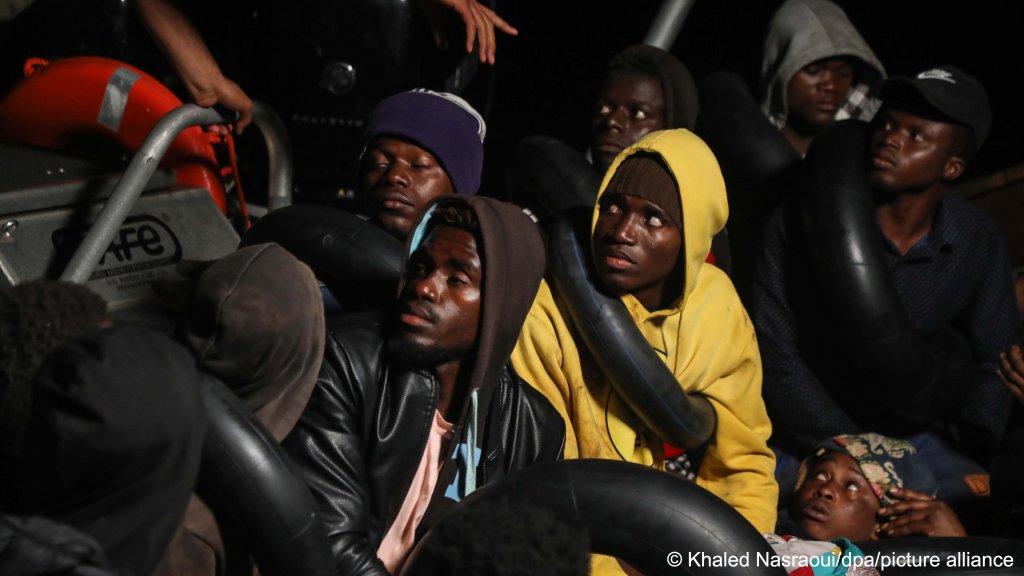
The brother of one of the witnesses stood up and shouted at the guards, "I beg you, please let us pass, you don’t want us here anyway. Let us go, there are children on board."
At that point, a second rubber boat from the GNT arrived, the witness said.
Although both boats "kept their distance", they continued trying to stop the migrant boat from continuing its journey, the witness recalled, explaining that water started entering the vessel.
'They shouted at us that we should swim towards them'
At that point, the first GNT rubber boat started coming closer to the migrant vessel to try and destroy their motor with a metal bar, the witness said.
After much back and forth, the migrant vessel started sinking due to the turbulence caused by the GNT boat.
The GNT boat moved "around five meters from us and shouted to us that we should swim towards them so they could save us," claimed the witness.
"Our boat sank completely and we all landed in the water. We were there for about 15-20 minutes and lots of people drowned."
Those who could swim were saved, said the witness.
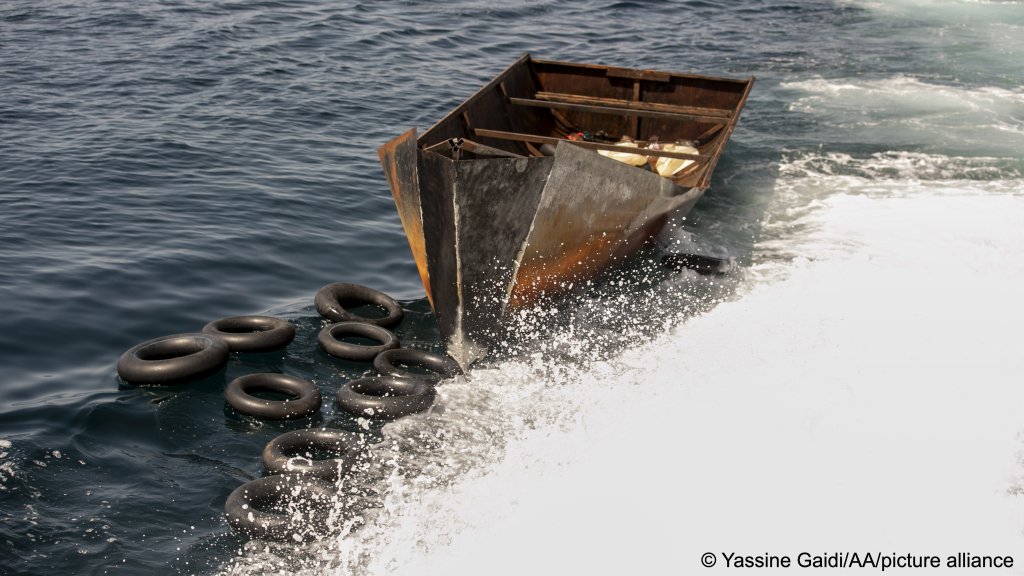
"The others were abandoned to the sea. The officers filmed us and laughed, instead of trying to save us."
This witness said they tried to help a woman nearby and swam with the one child that survived the sinking towards the GNT boat.
At that point the officers called for reinforcement, says the witness, and soon more officers started to help with the rescue and fish the bodies out of the sea.
"We heard the officers of the reinforcements tell off the first two boats about not having saved more of us and having caused the deaths of several people," claims the witness.
Taken back to Sfax
Those who were saved were taken on a big GNT boat to the port of Sfax. But when they were brought on shore, the witness says they weren’t given any food, water or dry clothes and were left to sit on the beach until the morning.
"That night, 16 people lost their lives, including nine women and six children. They only picked up 14 of those who died," the witness said.
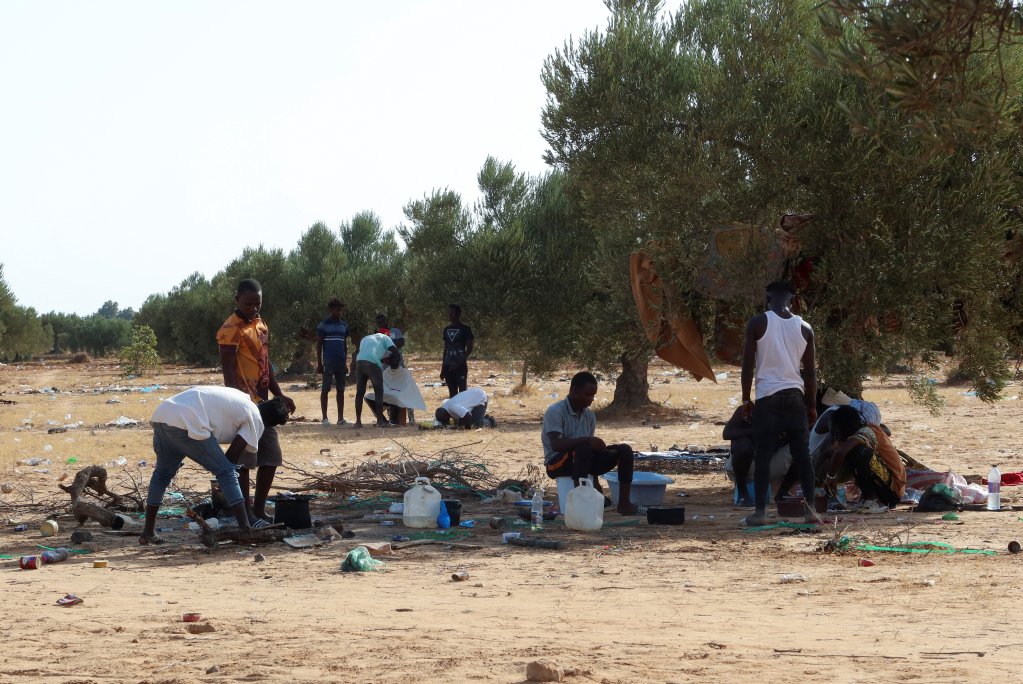
By the following morning, the witness said some 300 migrants were brought back to Sfax after attempting the crossing.
"The next day, the GNT told us to get on a lorry and they deported us to the desert. We were beaten, even the women who were pregnant," the witness said.
"Some women were physically abused and touched in intimate areas. After about 12 hours of driving, still with no food or water, in the dead of night, we were let out at the borders. My brother saw a pregnant woman die in front of him, and she wasn’t the only one."
Driven to Libya
The witness claims that the next morning, the Libyans arrived and rounded up all those who were still alive.
"We were taken to a prison in the desert. Many people are still shut up there, only those who were able to pay got out. They asked us for 1,000 euros."
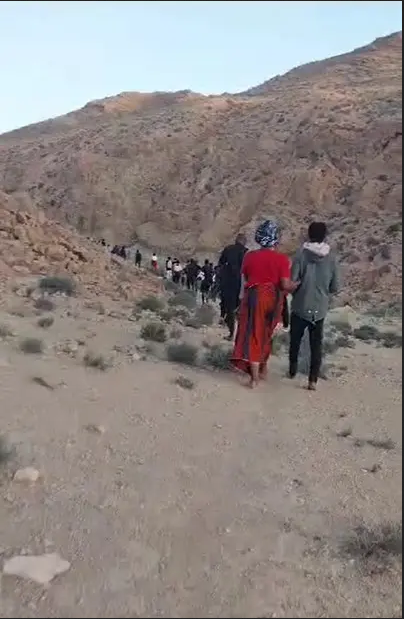
The project Memoria Mediterranea says that the kinds of policies like those described in Tunisia are happening right across North Africa, in Libya, Morocco and Egypt, where migrants are being pushed back, deported and even killed by the authorities at the border as well as by criminal gangs.
The project says that the EU’s new migration and asylum pact will only serve to make these practices worse, by "speeding up the process of selection at the borders and legitimizing the management of migration outside of the EU’s borders."
This will give "ample space border agencies, as well as allied third countries to carry out illegitimate practices, such as pushbacks, deportations and arbitrary detentions," thinks the organization.
Tunisian President Saied has repeatedly denied charges of racism. He said in 2023 that his comments had been "twisted" by those "who want division and discord in our country." In a video on the President's website, he said that those who were legally in Tunisia should feel safe, and that he only sought to protect the identity and security of Tunisia.
When the UN criticized Tunisia's treatment of Black African migrants in 2023, Tunisia hit back, calling for more "objectivity."
